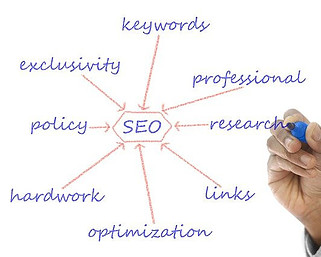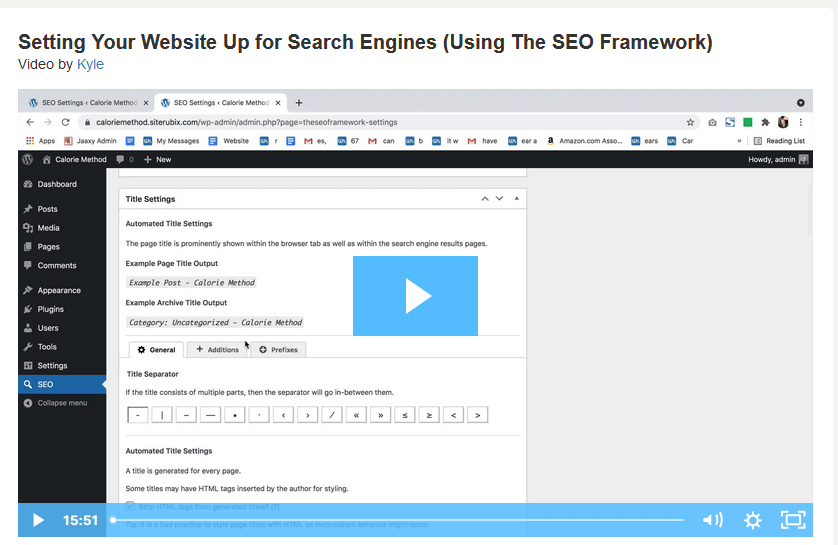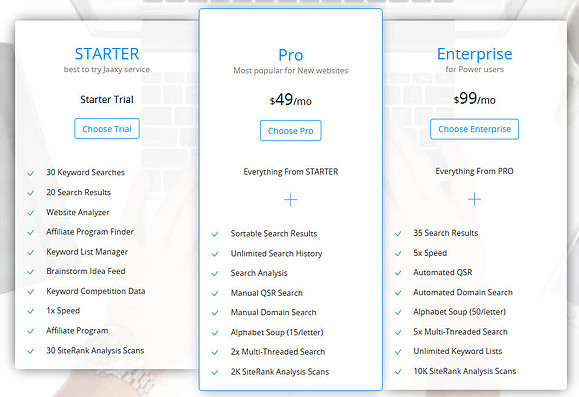Hello!
Some of you are wondering what is SEO? What is it used for? SEO stands for Search Engine Optimization. When people go to search for an item, term or whatever, in Google, Bing or DuckDuckGo, they are entering into a search engine. Search engines are like answering machines. They take in billions of pieces of content and evaluate thousands of factors to determine which content is most likely to answer your query. The Optimization part is the part for the content creators, either a blog website, YouTube channel or Social Media, we use SEO to optimize to get rankings and traffic to our website, YouTube channel and Social media.
How SEO works
For people getting started in the affiliate marketing blogging or YouTube vlogging SEO, “Search Engine Optimization” is something you will want to learn about. It can be kind of confusing at first but let’s break down how SEO works.
This is the process of optimizing your website to get organic, or unpaid, traffic from the search engine results page. You want to make your website and content more attractive then other websites in your same niche.
Google and Bing have search bots that crawl web pages on the web. These bots go from site to site gathering information and putting them in an index. The algorithms search all the pages the bots indexed. The analysis takes into account hundreds of ranking signals and factors. The Algorithms determine where the pages appear in search results when people query.
The Algorithms are designed to produce relevant, authoritative pages of content when people search on subjects on the web or even YouTube. It’s important to have quality content and keyword research, is important for crawlability, content optimization and being mobile friendly is also important.
Is SEO important?
While paid advertising, social media, and other online platforms can generate traffic to websites, the majority of online traffic is driven by search engines. Is SEO Important? Well yes, it’s one of the most important digital marketing skills needed to drive traffic to a blog website, to YouTube, any social media, to get organic traffic. Not paid traffic by running adds to get people click on your site. 
To understand the true meaning of SEO, let’s take a look at the definition and look at the parts:
- Quality of traffic. You
can attract all the visitors in the world, but if they’re coming to
your site because Google tells them you’re a fitness buff when really you’re a gardening website, that is not
quality traffic. Instead, you want to attract visitors who are genuinely
interested in the niche you are promoting. - Quantity of traffic. Once you have the right people clicking through from those search engine results pages (SERPs), more traffic is better.
- Organic results. Ads make up a significant portion of many SERPs. Organic traffic is any traffic that you don’t have to pay for.
Search Engine Results Pages are often known as SERP’s. It’s important to remember that search engines make money from advertising. Their goal is to better solve searcher’s queries with SERPs, to keep searchers coming back, and to keep them on the SERPs longer. Organic search results cover more digital real estate, appear more
credible to savvy searchers, and receive way more clicks than paid advertisements.
SEO is also one of the few online marketing channels that, when set up correctly, can continue to pay dividends over time. If you provide a solid piece of content that deserves to rank for the right keywords, your traffic can snowball over time, whereas advertising needs continuous funding to send traffic to your site. Optimizing your site will help deliver better information to search engines so that your content can be properly indexed and displayed within search results.
How Search Engines Work
When talking about how search engines work, I will be talking about Indexing, Crawling and Ranking.
Search engines work through three primary functions:
- Crawling: Scour the Internet for content, looking over the code/content for each URL they find.
- Indexing: Store and organize the content found during the crawling process. Once a page is in the index, it’s in the running to be displayed as a result to relevant queries.
- Ranking: Provide the pieces of content that will best answer a searcher’s query, which means thatresults are ordered by most relevant to least relevant.
What is search engine crawling? Crawling is the discovery process in which search engines send out a team of robots also known as crawlers or spiders to find new and updated content. Content can vary — it could be a webpage, an image, a video, a PDF, etc.— but regardless of the format, content is discovered by links.
What is a search engine index? Search engines process and store information they find in an index, a huge database of all the content they’ve discovered and deem good enough to serve up to searchers.
Search engine ranking – When someone performs a search, search engines scour their index for highly relevant content and then orders that content in the hopes of solving the searcher’s query. This ordering of search results by relevance is known as ranking. In general, you can assume that the higher a website is ranked, the more relevant the
search engine believes that site is to the query. If you want your content found by searchers, you have to first make sure it’s accessible to crawlers and is indexable. Otherwise, it may as well be invisible.
To determine relevance, search engines use algorithms, a process or formula by which stored information is retrieved and ordered in meaningful ways. These algorithms have gone through many changes over the years in order to improve the quality of search results.
Google, for example, makes algorithm adjustments every day — some of these updates are minor quality tweaks, whereas others are core/broad algorithm updates deployed to tackle a specific issue, like Penguin to tackle link spam. Why does the algorithm change so often? We do know that Google’s aim when making algorithm adjustments is to improve overall search quality.
 The Role Content plays in SEO
The Role Content plays in SEO
There would be no point to links if they didn’t direct searchers to something. That something is content! Content is more than just words; it’s anything meant to be consumed by searchers — there’s video content, image content, and of course, text. Search engines are like answer machines, content is the means by which the engines deliver those answers.
Any time someone performs a search, there are thousands of possible results, so how do search engines decide which pages the searcher is going to find valuable? A big part of determining where your page will rank for a given query is how well the content on your page matches the query’s intent.
What are Engagement metrics?
When Google talks about engagement metrics, they mean data that represents how
searchers interact with your site from search results. Which includes:
- Clicks (visits from search)
- Time on page (amount of time the visitor spent on a page before leaving it)
- Bounce rate (the percentage of all website sessions where users viewed only one page)
- Pogo-sticking (clicking on an organic result and then quickly returning to the SERP to choose another result)
Keyword Research
The power of keyword research lies in better understanding your target
market and how they are searching for your content, services, or
products.
Keyword research provides you with specific search data that can help you answer questions like:
- What are people searching for?
- How many people are searching for it?
- In what format do they want that information?
Before you can help a business grow through search engine optimization, you first have to understand who they are, who their customers are, and their goals. Keyword searches can take time, some people will ignore this step. This step should be taken seriously and take the time to do it. Focusing on your audience and then using keyword data to hone those insights will make for much more successful campaigns than focusing on arbitrary keywords.
You probably have a couple keywords in mind that you would like to rank for. These will be things like your products, services, content or other topics your website addresses, and they are great seed keywords for your research, so start with those. You can enter those keywords into a Keyword Search Tool like Jaaxy. Once you enter your seed keywords into a keyword research tool, you will begin to discover other keywords, common questions, and topics for your content that you might have otherwise missed.
In the process of discovering relevant keywords for your content, you will likely notice that the search volume of those keywords varies greatly. While you definitely want to target terms that your audience is searching for, in some cases, it may be more advantageous to target terms with lower search volume because they’re far less competitive.
Since both high- and low-competition keywords can be advantageous for your website, learning more about search volume can help you prioritize keywords and pick the ones that will give your website the biggest strategic advantage.
Search Volume
The higher the search volume for a given keyword or keyword phrase, the more work is typically required to
achieve higher rankings. Big brands often take up the top 10 results for high-volume keywords, so if you’re just starting out on the web and going after the same keywords, the uphill battle for ranking can take years of effort.
Typically, the higher the search volume, the greater the competition and effort required to achieve organic ranking success. Go too low, though, and you risk not drawing any searchers to your site. In many cases, it may be most advantageous to target highly specific, lower competition search terms. In SEO, we call those long-tail keywords.
Keywords with very high search volumes may even indicate ambiguous intent, which, if you target these terms, it could put you at risk for drawing visitors to your site whose goals don’t match the content your page provides. Don’t underestimate these less popular keywords. Long tail keywords with lower search volume often convert better, because searchers are more specific and intentional in their searches.
An important step in the keyword research process is surveying the SERP landscape for the keyword you want to target in order to get better gauge of searcher intent. If you want to know what type of content your target audience wants, look to the SERPs! Google has closely evaluated the behavior of trillions of searches in an attempt to provide the most desired content for each specific keyword search.
 There are affiliate links in this post, if you click on a link, I may get a commission to help support my website and you get a great product at no extra cost to you.
There are affiliate links in this post, if you click on a link, I may get a commission to help support my website and you get a great product at no extra cost to you.
Tools for Keyword Search
So whether you need to perform keyword research, audit your website, do competitive research, or just want to see how well you rank on Google, you need to use one of the best SEO tools, called Jaaxy.
Jaaxy is the industry’s only keyword and research platform that was developed by affiliate marketers FOR affiliate marketers. There are an incredible number of hands on processes that are very time-consuming when it comes to your business. Keyword and competition research can now be a breeze!
With Jaaxy you are getting the most advanced, yet useful platform in the world for managing all aspects of keyword,
website, competition, and market research.
With over 500 Million “brand new” search terms being searched every day, it is important that you have a keyword tool that can offer accurate traffic, competition, and domain insights into billions of keywords. Jaaxy is that tool.
With the Keyword Research Tool, you are going to be able to quickly discover unique, hot and untouched keywords that you will then be able to use, to drive your SEO and PPC campaigns to new heights.
SiteRank is a platform exclusive to Jaaxy that is going to allow you to monitor and track ANY rankings in Google, Yahoo, or Bing for ANY website!
You are going to be able to trace fluctuations to and you will be automatically notified upon achieving ranking metrics in Google,
Yahoo, DuckDuckGo or Bing. It is a true SEO dream tool and is an essential for affiliate/internet marketers, blog owners, local marketers, and merchants.
Sign Up & Get 30 Searches, Completely Free!
===>Click here to sign up completely Free and Create a Starter Account<===
Already have an account and ready to upgrade?
===>Click here to upgrade Jaaxy<===
My Personal Thoughts
I have been using Jaaxy since about mid-January 2021. I find it helpful with optimizing my website post to try to get indexed first then ranked on the first page of Google. I started off with the free starter membership. After I got using it, I realized I needed to upgraded to the Enterprise. Only upgrade to what you can afford. If staying at the starter works best for you financially right now then stay with it.
Most people don’t upgrade until their site starts making money and reinvest back into their website by getting an upgrade to Jaaxy.
If you are interested in becoming a content creator, check out this post – How to Start a Website – Create a Blog Website
I hope you found this helpful. Do you have a website, YouTube or Social media platform you are trying to get ranked and searched for? Leave a comment below and let me know if you have an SEO tool you are currently using and how you like it. Or if you never done this before, let me know that too.
Cheers!
Chris




Hi Chris, and thanks for your informative post on SEO. It is important to understand when trying to rank in Google and Bing. People Approaching Retirement Age is the title of your website. Trying to have a website is one way to earn extra income after retirement, and understanding SEO goes along way in achieving that. So thanks for bringing this to our attention. I like your analogy of SEO – search engines, are like answering machines. They are on the ready to find the best post that answers the questions of what people are searching for. Thanks for helping us grasp a better understanding of SEO.
Hi Carolyn,
Yes I found this not difficult but getting used to searching and using the tool. I researched this topic to help me with my own websites and YouTube channel. I am glad it helped you and hopefully help others. Thank you for leaving a comment.
Hi Chris, I am happy I found this website that explains the process of ranking websites in great detail. I always wondered how people drive organic traffic to their websites. Now I understand how it is done through your step-by-step explanation and I am going to follow it. I use the JAAXY keyword tool to search my keywords and then try to get a higher score with the all-in-SEO PLUGIN. I wish to know another plugin I can use to compare the score from the All-in-one SEO. Thanks for helping.
Hi,
I am glad I could help. Thank you for your comments.
Great article Chris. You did a great job of breaking down everything that goes into SEO and how to help drive organic traffic to your website and improve rankings within Google, Yahoo, and Bing. I love that you mentioned Jaaxy, it’s such a fantastic tool. No matter what sort of content you’re creating, everyone who exists on the online space making content should definitely be utilizing Jaaxy to do keyword research with.
Hi Rachel,
Yes, I am loving Jaaxy! It’s very helpful with getting your content ranked in search! Thank you for your comments.
Hello there, Chris! This is a great topic for a post. I have worked with SEO for a couple months but even now, my understanding is still very basic and still feel like I haven’t been able to maximize the full advantages of it just yet. Reading through your article, there were a few things I missed when I went through my basic SEO training. I definitely do still have to go for the low competition key words but sometimes I feel like I keep adding more keywords to make my post sound interesting. Without realizing, I feel like I do go too low sometimes that I risk not drawing enough searches to my site. Going to have to change up my strategy now. Thanks for this.
Thank you Mike, I am getting better at SEO and find the whole thing very interesting